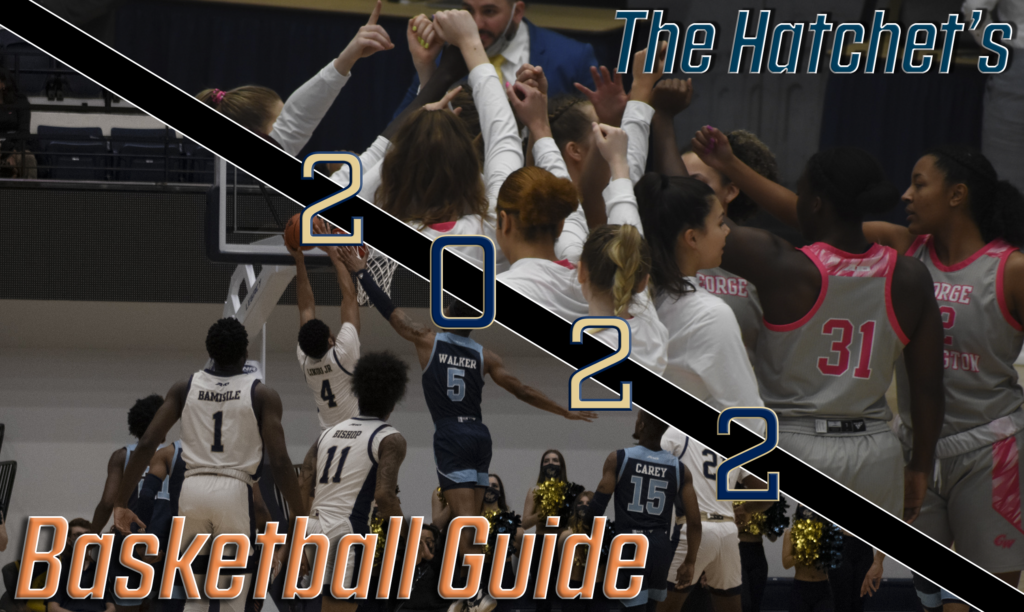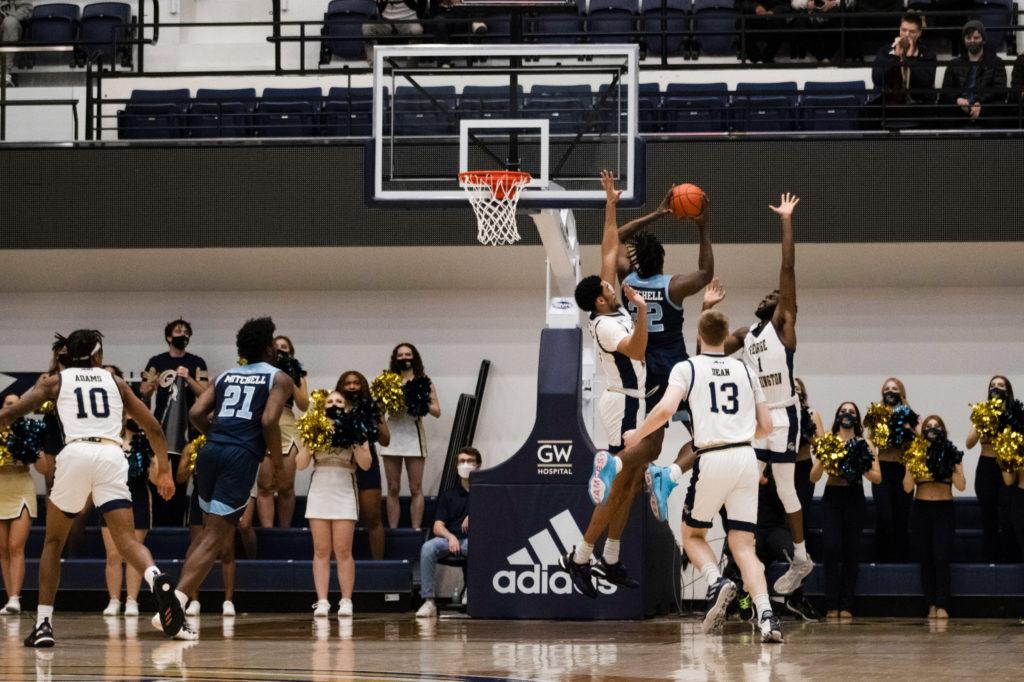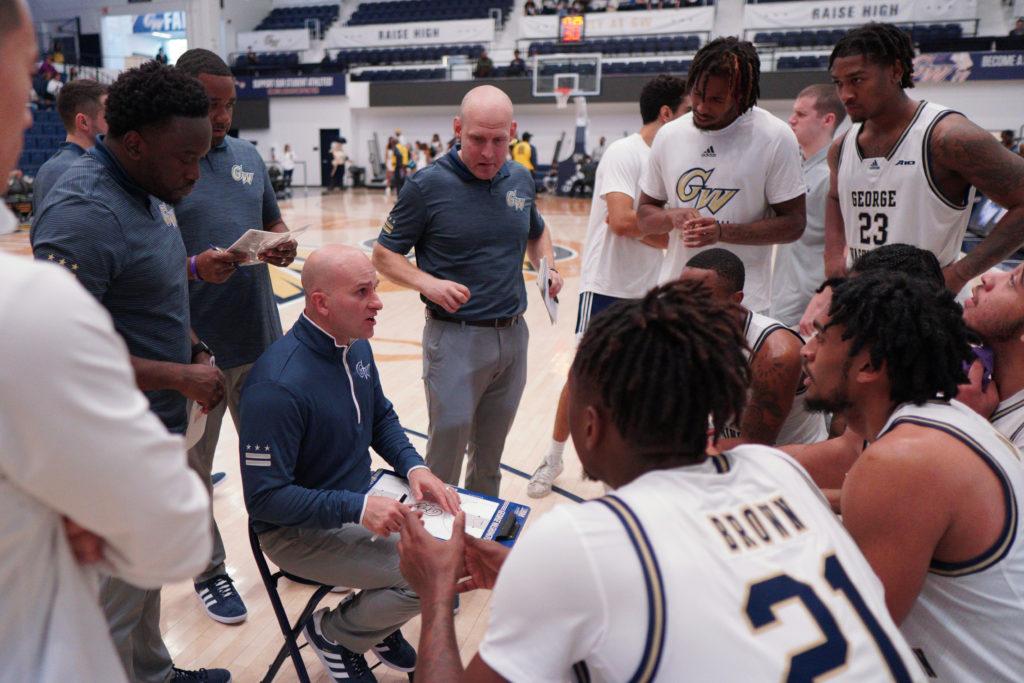The challenges of the 2012-13 season almost make it seem as if it’s Mike Lonergan’s first year on the Smith Center’s hardwood.
He’s adding six new faces to his roster and starting at least three – marking the first time that a large chunk of the Colonial roster comprises his recruits. And he’s taking GW into competition in a league that features two new teams. It’s a 16-program field that became increasingly difficult to navigate last year after a record-tying eight Atlantic 10 teams made the postseason.
It’s like a first season – except Lonergan can’t help but remember last year.
“It was disappointing. I thought the players and coaches, we worked really hard, but we didn’t have a lot to show for it on the court. We didn’t reach our goals, that’s for sure,” Lonergan said. “We had some close losses against some of the better teams [and] didn’t really get a win to build on. I’ll definitely never forget that season, but we’ve moved on.”
Even with GW’s struggles last season, Lonergan remains convinced that the team’s system last year was a winning one. He shies away from any suggestion of changing his game plan, aside from discussing the additions to the roster that he hopes will aid the team’s play.
Defensively, Lonergan said, he continues to preach the importance of rebounding, and he said he hopes that the additions of senior forward Isaiah Armwood and freshman forward Kevin Larsen will give the Colonals the sort of advantage on the boards that can help them establish a fast, commanding transition game.
The team’s offensive maneuvers will likely look familiar this season, too. Last season’s failures weren’t the system, Lonergan said, and were instead more a failure on his behalf to hide GW’s weaknesses and play up its strengths. This year, he said he feels more prepared to mold the team and the game plan together.
“We didn’t shoot the ball well, and we didn’t rebound. I’d like to say we’ll play more up-tempo, but that will depend on our rebounding ability,” Lonergan said. “I’ve just always thought it was just an excuse that people would say – that this offense doesn’t fit the players. I don’t know what offense – we tried about 10 different offenses, and like I said, it was just not successful.”
GW’s shooting struggles, however, have continued to plague it through the opening two contests of the 2012-13 season. And at some point, Lonergan concedes, that’s a hole he will largely have to fix through recruiting.
Lonergan’s focus on crafting the Colonials of the future was at the forefront last season, a continual reminder of his intent to build the program for years to come. And the intensity of his recruiting style is revealed in each story relayed by his incoming class. Armwood, a transfer student from Villanova, was a local name that proved beneficial in selling GW to the rookies, Lonergan said.
But beyond touting his roster, Lonergan sold his interest in the high school seniors. Freshman guard Joe McDonald relayed stories of the Colonial coaches shivering in the stands of his winter football games, and fellow freshman guard Kethan Savage countered that with tales of his own that showed the voracity of Lonergan’s recruiting.
“One of the coaches from the coaching staff went to every home game that we had at Episcopal High School. So I felt like they wanted me to really be a part of the program,” Savage said. “I felt like I could make an impact in this program, and that’s what I’m looking forward to doing. They just kept in contact with me constantly.”
McDonald and Savage are two of an incoming class of five freshman recruits, joining Larsen, freshman forward Patricio Garino and freshman forward Paris Maragkos. With Armwood, that marks six new faces for the Colonials this season. It’s a daunting number to try to incorporate into a roster, but Lonergan and players alike say the team’s chance to practice over the summer – and its Italian tour – were instrumental in cementing team chemistry.
More concerning for Lonergan, perhaps, is the number of freshmen that will start for GW. He estimates that three, maybe four, newcomers will start each game, including Armwood. It is a tough burden to place on young players, and the biggest weight falls on the shoulders of McDonald.
Last season, the Colonials saw Tony Taylor, the guard who carried the team for most of his GW tenure, graduate, leaving McDonald to fill his shoes. The two are entirely different players, Lonergan said, and he has the utmost confidence in McDonald. He’s wasted no time in communicating that faith.
“We’ve had multiple conversations, whether it’s through text or in person, about how much confidence he has in me. Hearing that from my head coach just builds my confidence,” McDonald said. “To know that he sees I can be somebody here, that’s good to know.”
But even though Lonergan readily admits that a significant challenge has been presented to his freshmen, he doesn’t shy away from pointing out the need for GW’s seniors to step up this year.
The team needs strong leaders, Lonergan said, and it needs production from its veterans, like Armwood, senior guard Lasan Kromah, senior forward Dwayne Smith and – once he’s healthy – senior forward David Pellom.
“Our season this year – how successful we are – will really be decided by our juniors and seniors, and not our freshmen. Because I know our freshmen are talented, they’re good players and they can play hard, but they’re still freshmen,” Lonergan said. “But this year, how Dwayne, [junior forward] Nemanja [Mikic] and Lasan and those returning guys – how they do will really decide how successful our season is. So they’re really important.”
The veterans take on added importance as the Colonials stare down a stronger Atlantic 10 than ever before. During the offseason, the league added VCU and Butler to its ranks, padding the conference with two recent powerhouses.
Making the 2012-13 A-10 season even more unique is the fact that the two teams set to depart the league, Temple and Charlotte, won’t transfer away until next year. The result is a 16-team field that features stronger competition and a twist in postseason play.
The Atlantic 10 tournament wasn’t adjusted according to the additions to the league, which means that 16 teams will compete for 12 postseason slots, rather than the 14 that were vying for the same positions last year. It’s just one more hurdle in the long road Lonergan sees as his program’s path back to redemption. And it’s yet another sign of the need for GW’s head coach to continue looking toward its future.
“What I did [last season], every time we lost – or every night – I went recruiting. I never want to be in a situation like that again,” Lonergan said.






